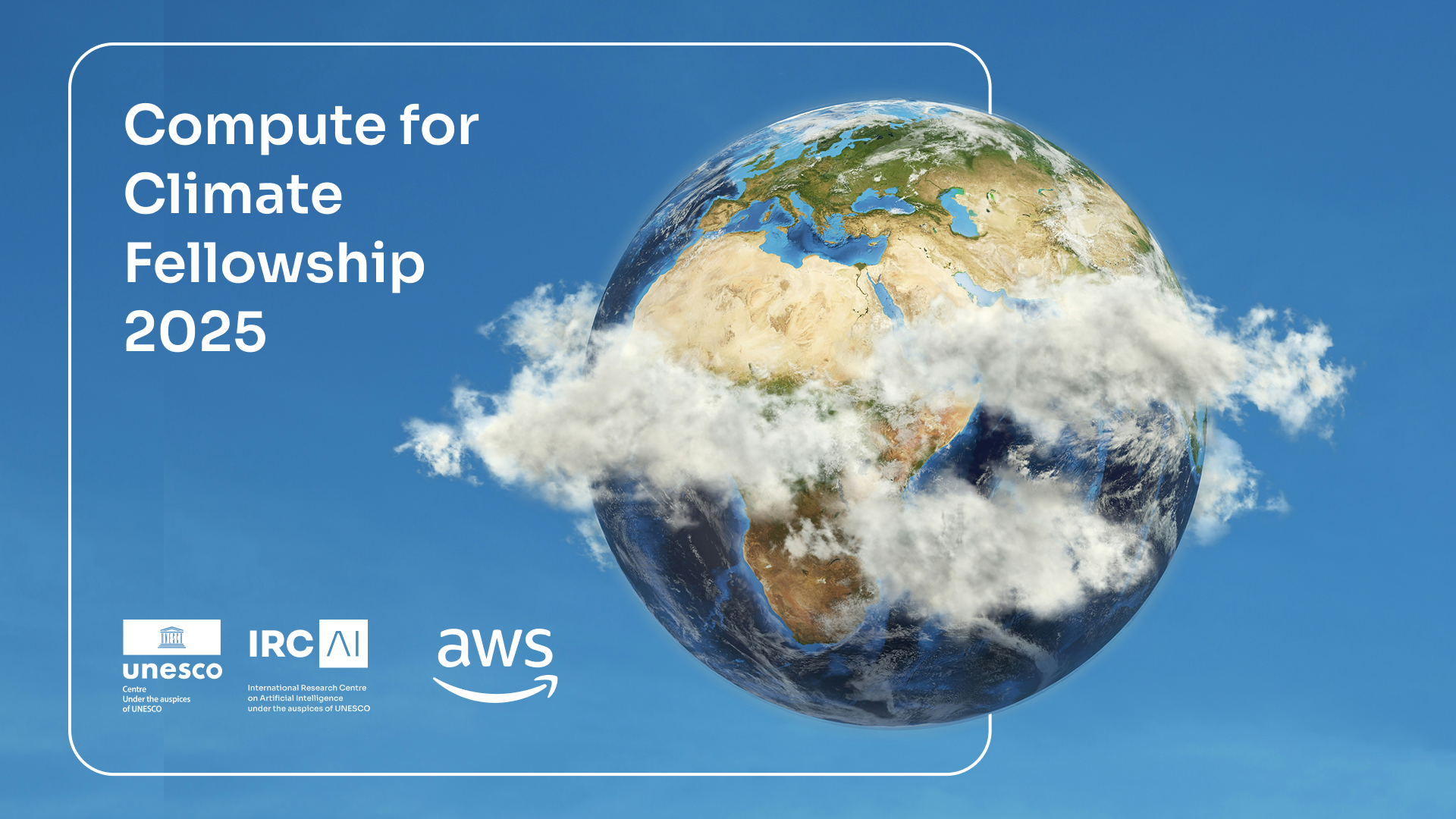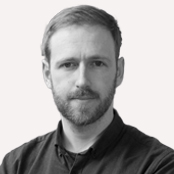

2025 Cohort Announced – Meet the Winners!
We are excited to announce 23 groundbreaking startups selected for the 2025 Compute for Climate Fellowship! Chosen from over 370 applications across 61 countries, these startups will receive funding in form of AWS credits, expert mentorship, and access to advanced AI and cloud computing resources to develop innovative solutions for the climate crisis. Their projects tackle pressing challenges in clean energy, carbon removal, zero-waste manufacturing, sustainable agriculture, resilient infrastructure, and more. The winners of the 2025 cohort are:
80 Acres Farms
80 Acres Farms operates cutting-edge indoor vertical farms that grow fresh, pesticide-free produce using 100% renewable electricity and 95% less water. Combining advanced technology with deep analytics, the company delivers longer-lasting harvests while significantly reducing food waste and agricultural emissions.
As part of its work with the Compute for Climate Fellowship, 80 Acres Farms is building a machine learning-powered genetic computing platform capable of accelerating precision breeding and improving genetic crop optimization. Their goal is to develop high-performance, climate-resilient crops with improved yield, reducing input waste and boosting food system sustainability.
Aionics
Through the 2025 Compute for Climate Fellowship, Aionics is developing advanced computational models to accelerate the discovery of non-flammable lithium-ion battery electrolytes. By applying machine learning–driven interatomic simulations in the cloud, they aim to improve the speed and scalability of battery innovation for a low-carbon future.
Amini
Amini is a deep tech startup providing AI-native infrastructure to address data and compute scarcity across the Global South. By transforming satellite and ground data into actionable environmental insights, Amini supports decision-making for climate adaptation, sustainable agriculture and resilient supply chains in vulnerable regions.
As part of the 2025 Compute for Climate Fellowship, Amini is developing a generative AI foundation model tailored to land-based climate intelligence in Barbados. The model will leverage multi-temporal, multispectral satellite data.
Anthrogen
Anthrogen is developing large protein foundation models to discover “de novo” proteins with transformative applications across human health and climate. At the intersection of AI and synthetic biology, Anthrogen is pioneering a new approach to carbon removal by engineering enzymes and microbes that capture atmospheric CO₂ and convert it into valuable materials such as polymers and fuels.
Using advanced gene-editing and AI-enabled protein design, Anthrogen enhances microorganisms’ ability to absorb and store carbon, providing a scalable and cost-effective solution for greenhouse gas removal. Its technology paves the way for sustainable manufacturing while supporting climate goals.
As part of the Fellowship, Anthrogen is building a generative AI foundation model based on a discrete diffusion framework to simulate protein evolution at scale. These simulations will power the creation of entirely novel enzymes tailored for climate-positive applications in clean chemistry and carbon-to-value conversion.
Aura Aero
Aura Aero is a French aircraft manufacturer developing electric and hybrid aircrafts to decarbonize air transport. Committed to contributing to a 55% reduction in aviation emissions by 2030, the company uses fully digital, cloud-based design processes to deliver next-generation aircrafts without compromising performance or safety.
As part of the 2025 Compute for Climate Fellowship, Aura Aero is building a high-performance cloud computing platform to simulate aircraft aerodynamics, structural components, and energy systems in the cloud.
Avalo
Avalo is an AI-powered agricultural technology company pioneering “rapid crop evolution” to build a more efficient, resilient, and sustainable global food system. By combining evolutionary biology with machine learning, Avalo’s platform accelerates natural plant development—uncovering climate-resilient genetic traits without using GMOs.
As part of the 2025 Compute for Climate Fellowship, Avalo is developing an AI-driven genomic selection system that uses large-scale simulations to optimize crop yields and accelerate plant breeding for climate adaptation.
Barnwell Bio
Barnwell Bio is a biotech company improving animal health and biosecurity through monitoring and metagenomic sequencing, focusing on commercial farming. By analyzing animal byproducts, its biosurveillance platform enables early detection of pathogens, helping farms respond proactively to infectious disease outbreaks.
As part of the Fellowship, Barnwell Bio is developing MetaVet, an AI chatbot that integrates large language models and predictive analytics to support proactive animal health management.
BeyondMath
BeyondMath is developing generative AI models that simulate the physical world for live aerodynamic optimization and sustainable vehicle design. Its platform is built on the market’s largest AI model for real-time, industrial scale engineering.
As part of the Fellowship, BeyondMath is developing a generative AI foundation model for sustainable vehicle design, supporting more efficient, low-emission transportation technologies.
Climate X
Climate X is an AI-enabled platform that simulates localized climate events and adaptation strategies to help financial institutions build more resilient real estate portfolios. By translating physical climate risks—like floods, heatwaves, and storms—into financial metrics, Climate X enables smarter investment, lending, and sustainability decisions.
As part of the Fellowship, Climate X is enhancing Spectra, its flagship tool that uses high-resolution digital twins to assess and adapt to climate risks at the property level.
Climavision
Climavision is redefining global weather forecasting through a proprietary network of high-resolution radars and its Horizon AI forecasting suite. By closing observation gaps and using high-performance AI models, it delivers hyperlocal, real-time forecasts to support critical decisions across energy, agriculture, and emergency management.
As part of the Fellowship, Climavision is expanding its ClimaHD platform to deliver sub-kilometer weather predictions, leveraging high-performance computing to improve accuracy and climate resilience.
CounterCurrent
CounterCurrent is decarbonizing the global shipping industry with AI-enabled ocean forecasts, satellite data, and autonomous sensors that optimize maritime routes in real time. Its platform helps fleets reduce fuel use, transit times, and CO₂ emissions, making maritime logistics smarter and more sustainable.
Through the Fellowship, CounterCurrent is enhancing its Hydra and Odysseus tools, using generative ocean forecasting to cut fuel consumption by up to 25% without changing ship hardware.
Cusp AI
Eavor
Eavor delivers next-generation geothermal energy with its closed-loop Eavor-Loop™ system, which provides clean and reliable baseload power without fracking. Its modular design enables scalable geothermal anywhere in the world, helping meet rising demand for secure, dispatchable renewables.
As part of the Fellowship, Eavor is building a modular, cloud-native multiphysics solver that uses AI to optimize drilling, system design, and autonomous geothermal power deployment.
FortyGuard
FortyGuard is the world’s first temperature AI platform for cities, helping them mitigate extreme heat and improve energy efficiency. It offers a real-time heat mapping with 2-meter precision and enables targeted cooling strategies that reduce energy use by up to 30%.
As part of the Fellowship, FortyGuard is developing a generative AI foundation model that integrates satellite imagery and IoT data to help cities cut energy consumption, protect public health, and improve climate resilience.
Fuse Energy
Fuse Energy is a renewable energy company, accelerating the transition to net zero. By developing its own wind and solar farms and leveraging AI-enabled trading, it delivers 100% renewable electricity to homes and businesses.
As part of the Fellowship, Fuse Energy is developing an AI-enabled energy trading and risk management (ETRM) system for real-time monitoring and automated trading of clean energy generation.
Matnex
Matnex is a deep tech startup accelerating the discovery and development of sustainable materials using AI and quantum mechanics. Their platform rapidly screens material candidates using AI models validated by quantum simulations, cutting the time and cost of development for clean technologies.
As part of the Fellowship, Matnex is developing SCOUT, a structure-based machine learning platform capable of screening over 10¹⁰ material compositions. The team is also developing a custom generative AI foundation model to accelerate the identification of materials optimized for sustainability.
Muir
Muir AI’s product intelligence platform helps businesses reduce emissions and optimize costs by combining AI, geospatial data, and supply chain modeling. It enables high-resolution emissions analysis in minutes, transforming how industries like pharmaceuticals and semiconductors manage sustainability across complex supply chains.
As part of the Fellowship, Muir AI is building Omni-BoM, a universal AI system that automates product emissions and cost analysis through advanced Bill of Materials processing.
OnDeck AI
OnDeck AI is developing advanced AI tools for ocean conservation and maritime monitoring on a global scale. Its system integrates vision-language models and retrieval-augmented generation (RAG) to interpret underwater imagery without labeled training data, automating up to 90% of visual monitoring tasks for scalable and affordable ocean observation.
As part of the Fellowship, OnDeck AI is building a motion-grounded video reasoning model on cloud infrastructure. This system will interpret unstructured marine video data in real time to support conservation efforts and enhance ocean monitoring worldwide.
Pretred
Pretred is a clean-tech company turning recycled tires into circular, eco-friendly industrial barriers. Their technology diverts large volumes of rubber waste from landfills and offers a durable, low-emission alternative to concrete barriers used in construction, utilities, airports, and municipal projects.
As part of the Fellowship, Pretred is developing SaferCrash SIM, a machine learning tool that predicts material performance and optimizes barrier design. This AI-driven system supports circular reuse of rubber while helping reduce road fatalities through safer and smarter infrastructure.
Rainstick
Rainstick uses AI and bioelectricity to enhance seed performance and support regenerative agriculture. By developing “bioelectric seed recipes” that mimic the natural effects of lightning, Rainstick helps crops grow faster, stronger, and more sustainably—without synthetic inputs or genetic modification.
Rainstick is the first Indigenous-led company to join the Fellowship. As part of the program, it is advancing its AI platform to create precision seed recipes that enhance yields, improve soil health, and strengthen the resilience of native ecosystems.
SXD
SXD is reimagining product design with AI and computer vision to eliminate material waste by design. Its platform generates zero-waste patterns and layouts, reducing material use by up to 69%, carbon emissions by 80%, and production costs by 55%.
By turning offcuts and production scraps into design opportunities, SXD helps industries like fashion, automotive, and consumer goods to transition from linear to circular systems—lowering costs, minimizing waste, and accelerating sustainable production at scale.
As part of the Fellowship, SXD is developing To Zero by SXD AI, an algorithm that converts traditional product designs into zero-waste versions using machine learning, computer vision, and combinatorial mathematics.
Windfall Bio
Windfall Bio develops nature-based solutions that harness methane-eating microbes (mems) to capture and convert methane emissions from farms, landfills, and industrial sites into valuable agricultural products, such as organic fertilizer. This approach targets methane, one of the world’s most potent greenhouse gases, and it helps to reduce emissions while supporting sustainable agriculture.
As part of the Fellowship, Windfall is developing an AI system that uses metagenomic data analysis to predict optimal microbial environments for maximum methane conversion efficiency.
Xcimer Energy
Xcimer Energy is commercializing laser-driven inertial fusion, the only fusion method with experimental validation, to deliver affordable, reliable, zero-carbon energy. By advancing excimer laser technology, known for its high-energy pulse capabilities, Xcimer is building the world’s highest-energy laser system to make fusion a practical and scalable energy source.
As part of the Fellowship, Xcimer is developing Iris, a digital twin platform designed to optimize laser performance and accelerate the development and deployment of fusion energy systems.

What is the Compute for Climate Fellowship?
The Compute for Climate Fellowship is a global R&D funding program that empowers climate tech startups to leverage advanced cloud computing and AI in the fight against climate change. The Fellowship was founded in 2023 by the International Research Centre on Artificial Intelligence (IRCAI), under the auspices of UNESCO, and Amazon Web Services (AWS). Each Fellow company accepted into the program builds a groundbreaking proof-of-concept (PoC) climate solution that is funded by AWS, with technical and scientific advisors from AWS and IRCAI.
and Benefits
1. Clean Energy
2. Low-Carbon Transportation
3. Sustainable Agriculture and Food
4. Circular Economy and Industry
5. Sustainable Buildings
6. Greenhouse Gas Management
7. Carbon Removal
8. Environment and Climate Risk
9. Indigenous Solutions to the Climate Crisis

Indigenous Solutions to the Climate Crisis
In addition to the eight solution areas above, the Compute for Climate Fellowship is also seeking proposals for tech-enabled climate solutions that are built by, with, and/or for Indigenous Communities. The Fellowship recognizes that Indigenous People are important leaders in addressing the climate crisis. These communities around the world are both widely impacted by climate change, and at the same time have traditional knowledge, innovations, and practices that offer powerful solutions to the climate crisis and biodiversity loss. The Fellowship is eager to support Indigenous innovators and indigenous solutions to the climate crisis and is putting out a call for proposals.
More background about the call here →.

Apply?
of building with advanced cloud computing.
Your proposal incorporates innovative use of advanced cloud computing services such as:
AI/ML and Generative AI
Autonomous Computing
Spatial Computing
Simulation Technologies
Time series data analytics

2025 Fellowship Process and Timeline
March 4th- April 6th
Applications open
April – June
Application review and interviews with finalists
June
Winners announced
June – August
Match winners with experts. Plan and scope PoCs.
September – November
Build PoCs

Fellowship Chairs

Lisbeth Kaufman
AWS Head of Climate Tech – Startups & Venture Capital

DAVOR ORLIČ
Chief Operation Officer, IRCAI

Fei Chen
Director of Advanced Computing Solutions, AWS

Cody Rasmus
Program Lead, AWS Startups

Aidan O'Sullivan
Associate Professor in Energy and AI at UCL

Previous Winners
2024
Aigen
Aigen is revolutionizing agriculture with solar-powered, autonomous robots that deliver precise, herbicide-free weed control while collecting detailed crop insights. Their solar-powered robots manage plants without chemical inputs, helping farmers improve yields, reduce emission and regenerate soil. By using AI and cloud technology, Aigen delivers high-resolution crop insights over greater temporal and spatial scales, enabling smarter farm management. Aigen’s solution reduces pollution and enhances soil’s carbon potential which enhances healthier food systems.
Aigen was part of the 2024 Compute for Climate Fellowship, which helped them accelerate the development of AI models and prepare their platform for large-scale farm deployment.
“The Compute for Climate Fellowship connected us with AWS’s world-class engineering team and infrastructure, accelerating our AI model development from weeks to days,” said Kenny Lee, co-founder and CEO of Aigen “The program was a turning point to ready our solar-powered robotic platform to quickly scale, enabling us to deploy in real farm fields, reduce chemical use, and support healthier food systems.”
Asoba
Asoba is transforming energy management in Africa with an AI-enabled platform that optimizes electricity distribution, enhances grid resilience, and supports a decentralized, sustainable smart-grid system. By integrating cloud infrastructure, smart meters, real-time data analytics, and autonomous control systems, Asoba enables energy stakeholders – independent energy producers, municipalities, and energy traders – to make data-driven decisions that reduce costs, improve reliability, and accelerate access to clean energy.
Within the 2024 Compute for Climate Fellowship, Asoba advanced its energy forecasting and grid management capabilities with expert mentorship and advanced computing resources. The experience marked a step forward in achieving their mission to optimize Africa’s public utilities to support sustainable development.
“Even though we are considered a climate company because we deal with renewables and integrate renewables, our primary focus is on human and economic development,” said Shingai Samudzi, CEO of Asoba. “We cannot achieve any of the development goals we have for Africa or the Global South without first having electricity that is both consistently available and affordable.”
Brightband
Brightband’s AI-enabled weather and climate forecasting platform improves extreme weather predictions and reduces the economic impacts of climate-related disasters. Their Earth System AI platform delivers fast, accurate, probabilistic weather forecasts by leveraging vast historical data and advanced machine learning models. Their goal is to open-source benchmark datasets, models, and metrics to foster a global community dedicated to improving global weather forecasting. Their platform serves academia, governments, and industry, providing accessible, scalable solutions for critical sectors like energy, transportation, and agriculture to make timely, data-driven decisions.
As a public benefit corporation, Brightband combines top AI, data, and meteorology expertise to operationalize AI weather forecasting at unprecedented speed and scale—helping humanity adapt to an increasingly extreme climate.
Cosma
Cosma is pioneering a new generation of underwater imaging with AI-enabled micro-drones that observe, map, and monitor seabed ecosystems at scale. Their time-saving and cost-effective environmental surveys deliver high-resolution, actionable data to support offshore energy projects, reef preservation, and sustainable ocean management.
As part of the 2024 Compute for Climate Fellowship, Cosma advanced its cutting-edge dataflows and AI technologies, particularly for the identification, localization, and inventory of rare benthic species, supporting more informed decisions focused on ocean biodiversity.
Lithos Carbon
Lithos Carbon scales carbon removal through Enhanced Rock Weathering (ERW), applying basalt on croplands to accelerate mineral weathering and store CO₂ as ocean carbonates. Their technology combines novel soil models and machine learning to maximize CO₂ removal while improving crop yields and soil health. By leveraging commercial-scale datasets, Lithos is developing a new generation of predictive environmental modeling.
Lithos advanced its measurement, reporting, and verification (MRV) capabilities, enabling more scalable and cost-effective carbon removal.
“Society needs cost-effective carbon removal, and we’re thrilled to work with Amazon Web Services and the International Research Centre on Artificial Intelligence as collaborators in scaling our catalytic, data-driven technology,” says Mary Yap, co-founder and CEO of Lithos Carbon.
Matter Intelligence
Matter Intelligence is building next-generation Earth observation infrastructure using hyperspectral and thermal imaging satellites that achieve 20x resolution improvements over current systems.
By combining advanced sensors, geospatial AI, and high-performance computing, Matter captures data with unprecedented resolution on the Earth’s natural and built environments, measuring shape, composition, and temperature to monitor ecosystems, track biodiversity, detect emissions, and predict critical climate events using physics-based models.
Smartex
Smartex is transforming textile manufacturing with an AI-enabled fabric inspection platform that reduces waste in the textile industry and enables textile manufacturers to optimize operations, enhance quality control, and streamline supply chain processes.
Their Smartex CORE system uses advanced computer vision and machine learning to detect defects in real time on circular knitting machines, preventing fabric waste before it occurs. With Smartex LOOP, they enable fabric roll-level data tracking and supply chain transparency, helping brands better understand and reduce the environmental impact of their production.
By preventing over 1 million kilograms of fabric waste in three years, Smartex demonstrates how AI can drive both operational efficiency and measurable climate impact.
Thea Energy
Thea Energy is developing fusion energy systems to create affordable, zero-emission energy to accelerate the decarbonization of industries and communities. By reimagining stellarator-based fusion through innovations in plasma physics, magnet design, and computational modeling, the company aims to create a limitless source of clean energy for a sustainable future.
As part of the Compute for Climate Fellowship 2024, Thea Energy expanded its stellarator physics optimization computing tools, enabling rapid iteration of plasma equilibrium design for its first integrated fusion system, Eos, and future Thea Energy power plants.
“Fusion has always been the holy grail of energy, but it’s hard to do,” says Brian Berzin, co-founder and CEO of Thea Energy in an interview with EnergyTech.com. “It’s hard to do but I would argue that’s inevitable.”
2023
hum.ai
Hum.ai (formerly Coastal Carbon) is building multimodal foundation models using satellite imagery to track and measure underwater vegetation growth and carbon sequestration. Their models interpret real-world environmental signals to support applications in nature conservation, carbon dioxide removal, and ecosystem monitoring.
As a participant in the 2024 Compute for Climate Fellowship, Hum.ai advanced the training of satellite-agnostic foundation models of earth and sea capable of identifying and quantifying blue carbon. This approach could enable up to a 1,000-fold increase in ocean monitoring and data collection, work done manually by divers.
The company collaborates with indigenous communities, particularly Canadian First Nations, whose deep-rooted knowledge contributes to coastal monitoring and ecosystem restoration.
“First Nations have been the stewards of these ecosystems since time immemorial, and therefore are often the most effective, knowledgeable, and deeply invested partners we work with,” said Thomas Storwick, COO of Hum.ai.
Phytoform
Phytoform is using biotechnology, artificial intelligence, and precision gene editing to develop crops that are more resilient and sustainable. Their machine learning platform, CRE.AI.TIVE, identifies and introduces new genetic traits into crops with unprecedented speed and accuracy, minimizing genetic disruption by targeting only the desired changes.
As part of the Compute for Climate Fellowship 2024, Phytoform enhanced the scalability and accuracy of its AI-enabled genetics platform to accelerate the development of crops able to withstand extreme weather. From low-waste potatoes to compact, labor-saving tomatoes for indoor farming, Phytoform’s innovations show how AI can address both food security and agricultural emissions.
Realta Fusion
Realta Fusion is developing compact magnetic mirror fusion energy systems aiming to help decarbonize heavy industry. A key part of their innovation is a first-of-a-kind plasma stability simulation, a critical requirement for fusion energy that typically depends on world-class supercomputers with limited availability.
As one of the inaugural participants in the Compute for Climate Fellowship, Realta became the first company to run the high-performance plasma stability simulation entirely in the cloud. With access to advanced computing, Realta accelerated its simulation capabilities and R&D, enhancing fusion solutions for a zero carbon future.
“The Compute for Climate Fellowship has helped us accelerate the development of a first-of-its-kind plasma stability simulation, which had never been done in the cloud before the program,” said Kieran Furlong, CEO and co-founder of Realta Fusion.
Xatoms
Xatoms is a water treatment startup harnessing AI and quantum computing to discover novel photocatalytic molecules for effective and affordable water purification. By developing AI algorithms capable of analyzing vast chemical datasets and simulating water-purifying molecules, Xatoms is accelerating the molecular discovery process and addressing global water challenges affecting more than two billion people worldwide.
As part of the 2024 Compute for Climate Fellowship, Xatoms focused on building an AI-enabled water purification technology, tailored to underserved communities in developing countries. Their work targets end users who lack access to clean water, aiming to reduce mortality rates and redirect time spent fetching water towards education and entrepreneurship.
“The Compute for Climate Fellowship will significantly boost our material discovery efforts, thanks to the resources and mentorship provided,” said Diana Virgovicova, CEO of Xatoms.

Press and Media
About Amazon
Clean Air Task Force + Fusion Energy
SDX Central
AWS Funds 4 Innovative Cloud, AI Startups

Frequently Asked Questions
Who can I contact with questions?
Please reach out to info@ircai.org with the subject “IRCAI AWS Fellowship”
I applied to the Fellowship before but wasn’t selected. Am I eligible?
Yes, please submit a new application and you will be considered for the next program.
What happens if I’m not selected for the Fellowship?
Startups that aren’t selected can apply for $5k in AWS Credits. Eligibility criteria includes: 1) Have not previously received AWS Activate credits of equal or greater value, 2) Self-funded or pre-Series B (most recent funding round must be within the last 12 months, if applicable), 3) Have a fully-functioning company website, and 4) Founded in the past 10 years. All AWS Activate credits are in USD and subject to the AWS Promotional Credit Terms & Conditions.
Will AWS build the PoC with my team?
Selected startups will be responsible for building the PoC. IRCAI scientific mentors and AWS technical expert mentors will advise on the design of the PoC, but will not build it. The startups will own IP resulting from the PoC.
Who can apply?
Private climate tech companies formed within the last 10 years, from any country.
How long is the PoC build phase?
2-3 months of development time.
Who owns the IP?
Startups retain ownership of all IP resulting from the POC.

Supported By
CONTACT
International Research Centre
on Artificial Intelligence (IRCAI)
under the auspices of UNESCO
Jožef Stefan Institute
Jamova cesta 39
SI-1000 Ljubljana
info@ircai.org
ircai.org
FOLLOW US
The designations employed and the presentation of material throughout this website do not imply the expression of any opinion whatsoever on the part of UNESCO concerning the legal status of any country, territory, city or area of its authorities, or concerning the delimitation of its frontiers or boundaries.
PRIVACY POLICY
